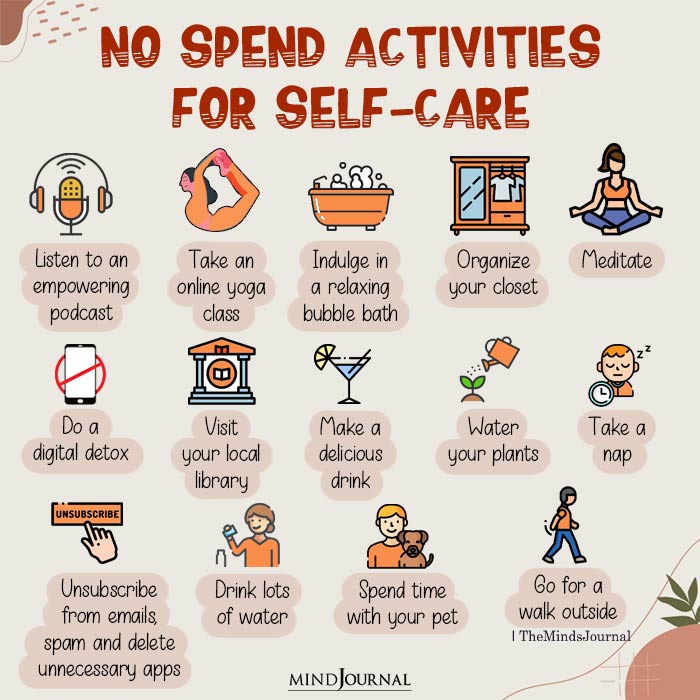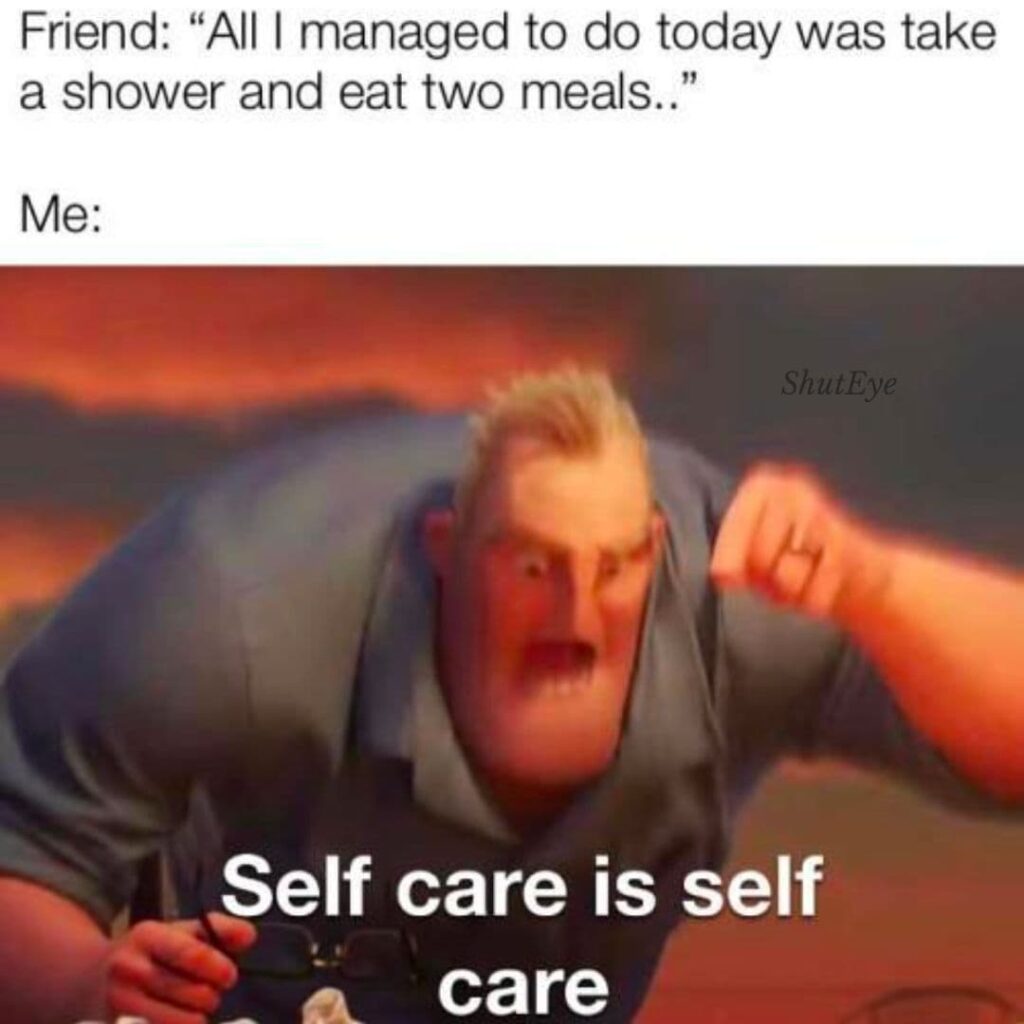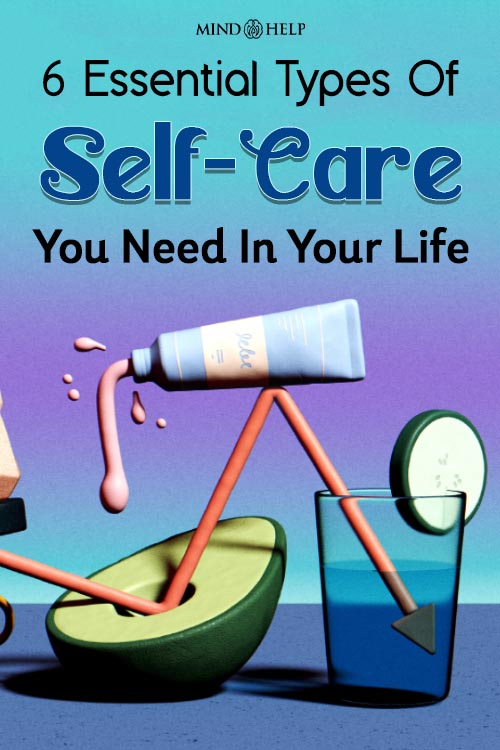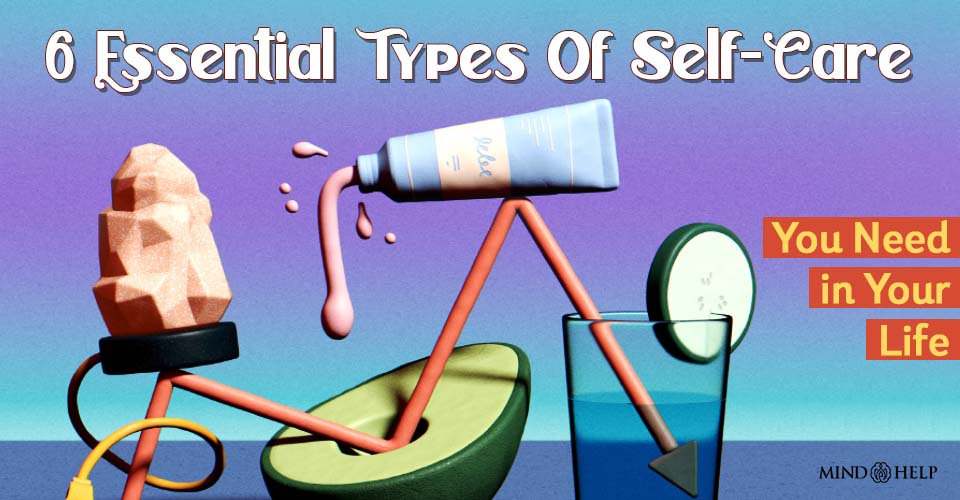Do you ever feel like you’re running on empty, yet still pushing through, because there’s “no time” for yourself? Self-care goes deeper than bubble baths and spa days (though those are lovely too!). There are different types of self-care, each serving a unique purpose in helping you feel grounded, energized, and whole.
Self-care is not a luxury; it’s a necessity. You can’t fuel others when you yourself are in need of an energy drink!
In this article, we’ll explore the different types of self-care, the importance of self-care, and the various benefits you’ll experience once you start making self-care a daily habit.

The Importance of Self-Care
Think yourself to be a plant. You shall wither if you don’t get enough water, sunlight, and care. With consistent attention, you grow, bloom, and thrive. The same applies to your well being.
Ignoring self-care opens doors for self-doubt, burnout, and stress. Even small activities start to feel overwhelming.
On the flip side, prioritizing self-care activities makes you glow not just for yourself but also for your loved ones. Self-care is the fuel that powers you mentally, emotionally, physically, and spiritually.
Read: Soul Care: 6 Micro Habits That Are Good For You!
The 6 Different Types of Self-Care
Here are the 6 types of self-care that are vital for your well being:
1. Emotional Self-Care
Let’s be honest, ignoring your emotions doesn’t make them go away. They keep bottling up and one fine day there is a volcanic eruption! So, learn to acknowledge, process and express your emotions in a healthy way.
Ways to practice emotional self-care:
- Journal your thoughts after a stressful day
- Talk about how your day was and how you feel to your loved ones
- Allow yourself to cry when you need to (that doesn’t make you weak)
- Practice gratitude to shift focus from what’s missing to what’s present
2. Mental Self-Care
Your mind is your body’s control centre. You need to be friends with it. Focus on keeping your brain active, clear, and positive.
Ways to practice mental self-care:
- Read a book that expands your perspective
- Play a game that sparks your interest
- Learn a new skill or maybe try to solve a puzzle to challenge your brain
- Practice mindfulness or meditation to quiet mental chatter
3. Physical Self-Care
Your body is your home. It needs your attention and care. Moreover, physical self-care activities boosts your confidence. Physical self-care involves nurturing your health through movement, nutrition, rest, and overall lifestyle.
Ways to practice physical self-care:
- Exercise regularly. It can be yoga, dancing or even hitting the gym.
- Drink enough water throughout the day, Yes that’s also self-care.
- Prioritize at least 7-8 hours of sleep at night
- Eat nourishing meals instead of always relying on junk food
- You can also create a skin care routine
Remember, physical self-care isn’t about looking perfect- it’s about feeling good and energized.

4. Social Self-Care
We all are social animals. We thrive on connection and emotions. Social self-care means building and maintaining meaningful relationships that uplift and support you.
Ways to practice social self-care:
- Schedule quality time with your family and friends
- Call a loved one just to catch up
- Join a club or a group that sparks your interest
- If you are in your “Love is in the air” era, you can go on a date
- Say “No” to bonds that drain your energy

5. Practical Self-Care
This type of self-care often gets overlooked. Practical self-care is all about managing daily tasks and responsibilities. It prevents room for burnouts. It isn’t something glamorous, but lays the foundation for a less stressful life.
Ways to practice practical self-care:
- Organize your home so it feels less chaotic (the external vibe matters, trust me)
- Pay bills on time to avoid unnecessary stress
- You can plan your budget to reduce financial stress in the long run
- Learn something new to upskill yourself
6. Spiritual Self-Care
Spiritual self-care is all about feeding the part of you that craves meaning, purpose, and peace. You surely don’t have to go to a mountain top to meditate.
Think of it as aligning with your inner compass, a gentle reminder, that you are more than your to-do list.
Ways to practice spiritual self-care:
- Practice meditation or prayer
- Engage in activities that align with your values and purpose
- Spend time in nature
- Reflect on gratitude or journaling about life’s deeper meaning
Read: How To Improve Spiritual Health For A Better Life
Benefits of Self-Care
When you embrace self-care as part of your lifestyle, the ripple effects are powerful. You feel recharged, driven and balanced. You live, not just survive. Something as stressful as a last-minute work deadline feels manageable instead of crushing.
Here are the rewards of practicing self-care:
- Improved mental health – Stress and anxiety no longer cling to you like your best friends.
- Better physical health – You start to glow not just from within but outside too.
- Stronger relationships – The energy boost within you starts reflecting in the way you nurture your relationships.
- Greater productivity – A well-rested, focused mind gets more done in less time.
- Increased resilience – Life throws challenges, but you stand still amidst all the chaos- thriving and evolving.
A Gentle Reminder
Self-care isn’t selfish. It’s about filling your own cup so you can pour into others without running dry.
Without tuning, even the most beautiful violin sounds off. These various types of self-care help you tune your body and mind to stay in harmony. Start small. Over time, these small acts add up to big transformations. Remember: You deserve the same care and kindness you so freely give to others.
Frequently Asked Questions (FAQs)
What is self-care?
Self-care means recharging your body, mind, and soul by tuning in to what you truly need – rest, movement, connection, or quiet. It’s about permitting yourself to prioritize those needs without guilt. You deserve moments that restore and energize you. Remember, taking care of yourself isn’t selfish – it’s essential. Make space for your well-being; your future self will thank you.
Why is self-care important?
Self-care matters because it helps you stay balanced, avoid burnout, and support your mental, emotional, and physical health. By making time for yourself, you recharge your energy, handle stress more effectively, and show up as your best self – not just for you, but for those around you too. Taking care of you is the first step to showing up fully.
Why is self-care important for mental health?
Self-care supports your mental health by giving your mind the space to rest, recharge, and process emotions. It helps reduce stress, ease anxiety, and build resilience. When you care for your mental well-being, your thoughts become clearer, your mood steadier, and you’re better equipped to handle life’s challenges with calm, focus, and a greater sense of control.
How to practice self-care?
You can practice self-care by listening to what you truly need – rest, movement, connection, or quiet – and making space for it without guilt. It’s about creating small, intentional habits like setting boundaries, journaling, taking a walk, or just pausing to breathe. These simple acts can restore your energy and bring more balance, peace, and clarity to your day.







